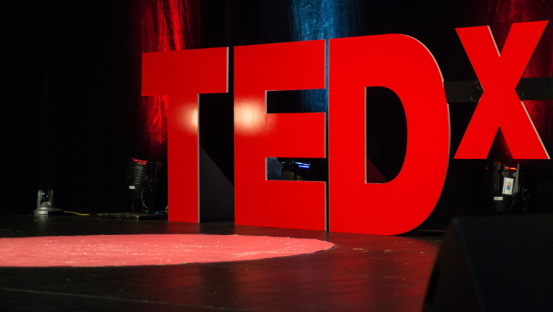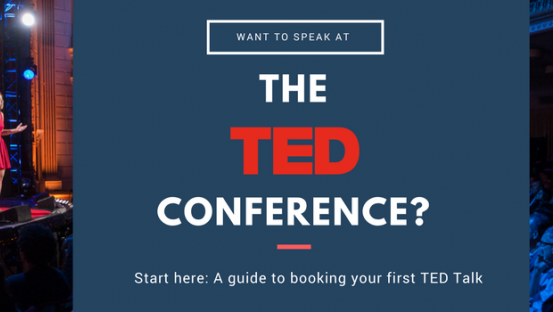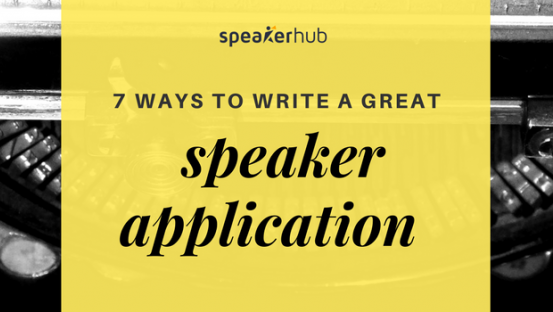Turn on the charm: Writing charismatic proposals to win speaking opportunities

Charisma, defined as having the quality of compelling attractiveness or charm, is one of those intangible character traits that is unmistakable when you see it.
It’s that unmistakable quality that meeting and conference planners are looking for when selecting speakers to put in front of their audiences.
Your speaker application has to entice meeting and conference planners to want to hear what you have to say before you ever take the stage.
This is where you make the case for why you should be on an event’s agenda, why their audience would be interested in listening to you.
Your speaker proposal has to be enticing and you’ve got to create your proposal in such a way that screams “I’m the speaker you’ve been looking for!”
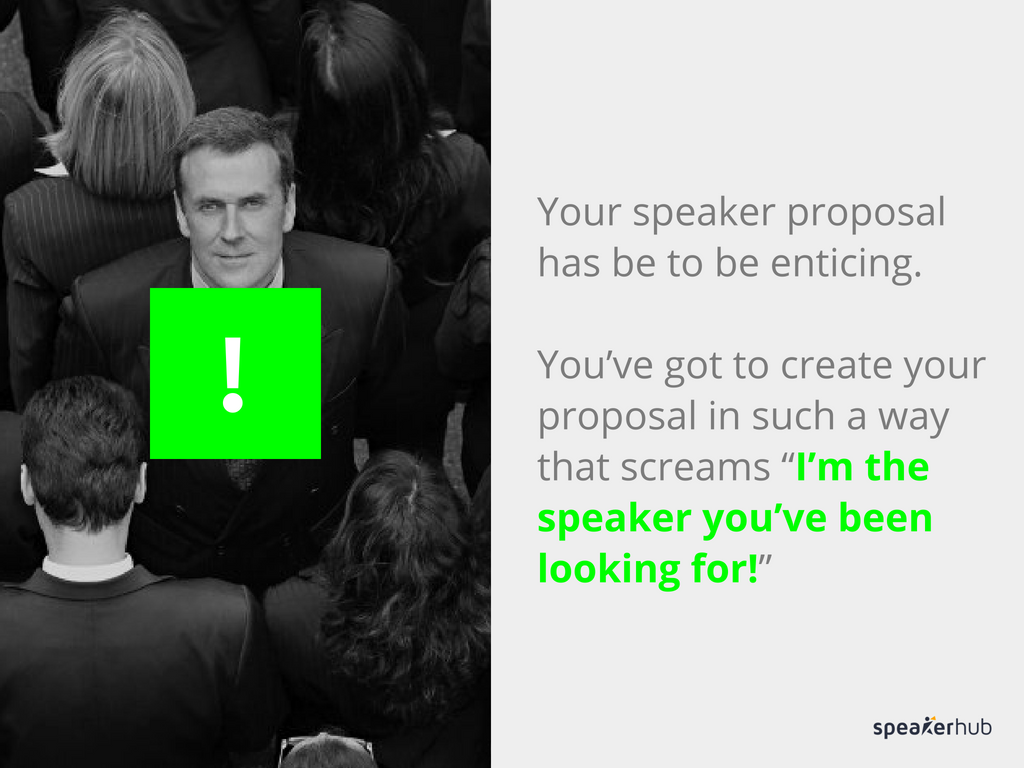
A speaker proposal is the place where you lay out the promise for what you will deliver from the stage.
To get selected, you have to do more than just list your agenda.
You have to sell your topic, sell your expertise, sell your enthusiasm – all while making a compelling argument for why this session is one that attendees simply won’t want to miss.
One of the keys to a winning proposal is writing with charisma.
Why charisma wins the race
It’s important to remember that when you are submitting a proposal to speak at an event, you are entering a competition.
Yours may be one of dozens, if not hundreds of speaker proposals, so getting on the agenda won’t be easy.
Your job is to make it as difficult as possible for a conference planner to pass on your presentation.
You ultimate goal is to win, which is why your proposal has to be written with a bit of sparkle and flair.
Every event is in the business of putting the best speakers and the most interesting presentations in front of their attendees.
Your proposal must demonstrate that you will be a great addition to the conference festivities, theme, goals and/or objectives.
This is your opportunity to express how compelling you will be on stage. The first step in that process is to create a powerful proposal that engages the reader. You shouldn't shy away from technology. Make your speaker proposal even more noteworthy by leveraging one of the best proposal tools out there. Most of them have free trials, so it probably won't cost you a dime using them for such occasions.
After all, if you don’t take the time to put together a compelling, thought-provoking and inspiring proposal, why on earth should the selection committee have faith you’ll deliver from the stage?

Charisma via keyboard
The first step in creating a charismatic speaker submission is to pick a topic that resonates with the audience.
No amount of creative writing can “sell” a presentation that does not connect with its intended target. And worst of all, if you do manage to get selected, you run the risk of being a disappointment.
Picking a hot topic is imperative.
A hot topic is something that:
-
inspires,
-
generates buzz,
-
a new innovation,
-
or a future trend.
Two ways to find your hot topic:
-
Talk to friends and colleagues and brainstorm about what other people are interested in and talking about in the given subject area you are looking to speak about.
-
Do a little web searching to find out what’s trending and what’s on the minds of other thought-leaders. These are potentially hot topics you can explore.
Some examples of hot topics might be a discussion about the latest efforts on General Data Protection Regulation (GDPR) compliance that stems from new Europe Union privacy protections, or a talk about the newest trends in business agility and creating a flexible organization.
Another hot topics could be today’s renewed focus on the importance of nutritional choices in education settings and the impact on learning, or the growing use of artificial intelligence (AI) in training healthcare professionals.
Conversely, you want to stay away from topics that are clearly retreads.
Anything that has been around for 10 years or is an established practice, should be avoided.
Unless you are bringing a really fresh spin or a complete reinvention of something tried and true, you’ll want to steer clear of anything that might be perceived as mundane or pedestrian.
It’s important to remember, not only does your talk have to wow the selection committee, it has to be highly attractive to conference attendees.
Organizers want their program to be chock full of scintillating talks and “can’t miss” topics, so they can fill the seats.

Bring some flair to your title – that’s where the sales job starts
The old expression “always put your best forward” certainly applies when it comes to your proposal.
The first thing the selection committee will see is your title.
It might be a small amount of copy, but these few words just might be the most important you write. This is the hook that lures in the reader.
Be sure to take time with your title. A perfect title can make all the difference between success and failure.

A perfect title:
-
Demands attention
sets the stage for the presentation, whets the reader’s appetite and, when possible, creates intrigue.
-
Includes a catch
A clever turn of a phrase, double entendre, a witty play on words, or pop-culture reference can amp up interest in your session.
-
Instantly engage in the content
A good title describes what the reader can expect, while a great title tells them what they’ll learn in an intriguing way.
A great title builds drama, yet still communicate what the presentation will cover. Remember, being clever just for clever sake won’t help you get selected if your title doesn’t actually describe what the session is about.
It’s important that a title be impactful, compelling, concise and most of all – on point!
Unleash your inner storyteller
When developing your proposal, you will want to think about how you can transform it into a story – one that has a thought-provoking opening/dilemma, a “damn-the-torpedoes” middle, and a hard-fought victorious ending.
A good story enables us to connect to an emotion, which in turn creates more of a lasting impression than straight up facts and figures. (Not to say that you shouldn’t include a choice stat or two, if they support the power of your story.)
Creating a story is actually simpler than you might think.
Start with the problem or existing trend, explain how obstacles were overcome, and then wrap up with the impact/achievement.
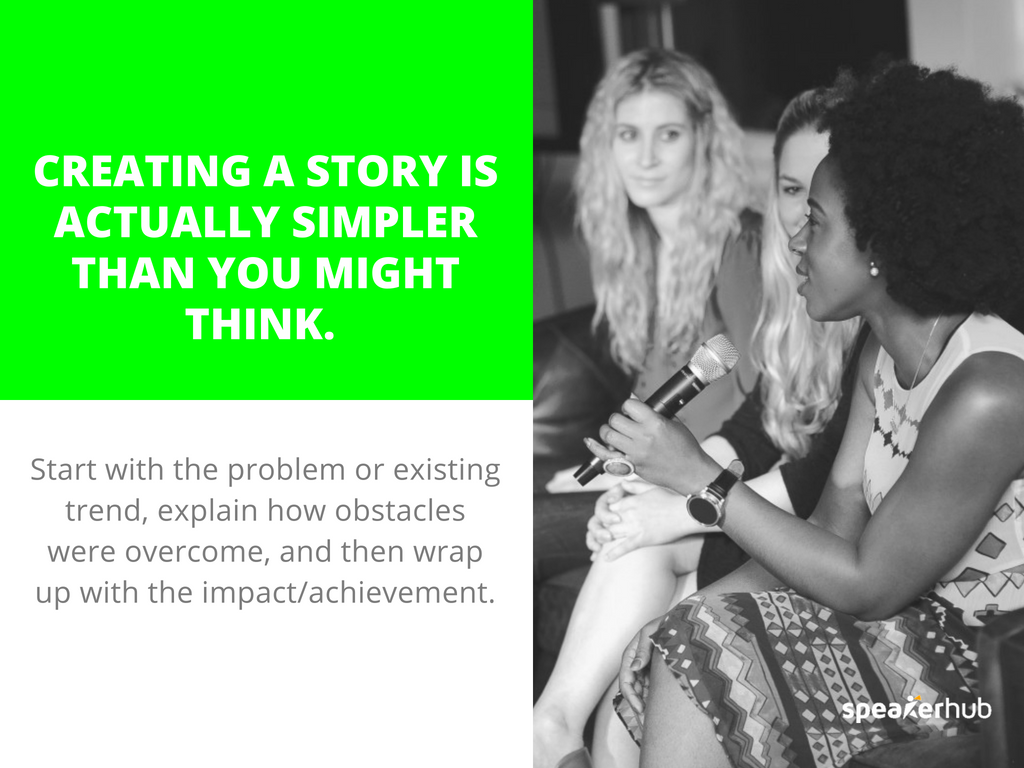
It might be helpful to think of it as a movie trailer that teases great things to come.
It’s also important to keep in mind that deftly turning your proposal into a story demonstrates to the review committee that your presentation will also be well worth the journey and clearly worthy of selection for the event.
Weak words are kryptonite: Use power words to amp up the charisma
The words you choose for your proposal are important.
And because you most likely are going to be limited in how many you can use, it’s critical to select them wisely.

Weak words in a speaker proposal subliminally communicate a weak speaker and a weak presentation.
What do we mean by weak words?
These are words that are:
-
passive
-
vague,
-
lacking specificity,
-
unnecessary,
-
and not particularly confident.
Examples include: really, nice, cool, interesting, almost, fairly, etc.
Conversely, strong or positive words will make the reader feel something.
These might include: absolutely, acclaimed, daring, eye-opening, ingenious, lucrative, powerful, etc.
Obviously, it’s important not to overuse such words, but a few strategically sprinkled throughout your submission can go a long way toward strengthening your prose, adding punch and helping you get selected to speak.
To the victor goes the spoils
The simple reality is that there are an awful lot of great speakers out there.
Many apply to speak at events, but few are chosen. In the case of TED Talks, conference curators consider about 10,000 application submissions to select approximately 65 slots for the main stage.
That’s pretty stiff competition.
This is why it’s important to raise your chances of getting picked by using engaging, persuasive language to draw event planners to your proposal.

Push past your comfort zone and talk about yourself and your presentation in glowing, engaging, charismatic terms and you’ll stand head and shoulders above the crowd and land more and more of the stages you pitch.
About the Authors:
Aurora Gregory and David Pitlik are co-authors of the Amazon Best-Seller “Get Picked: Tips, Tricks and Tools for Creating an Irresistible Speaker Proposal.” Aurora is a passionate business marketing coach helping entrepreneurs launch and grow their businesses. David is a business writer and master content creator with a gift for telling the story of business. Learn more about them and their book at GetPickedToSpeak.com.

